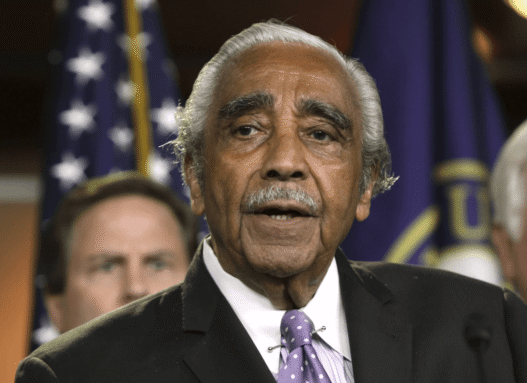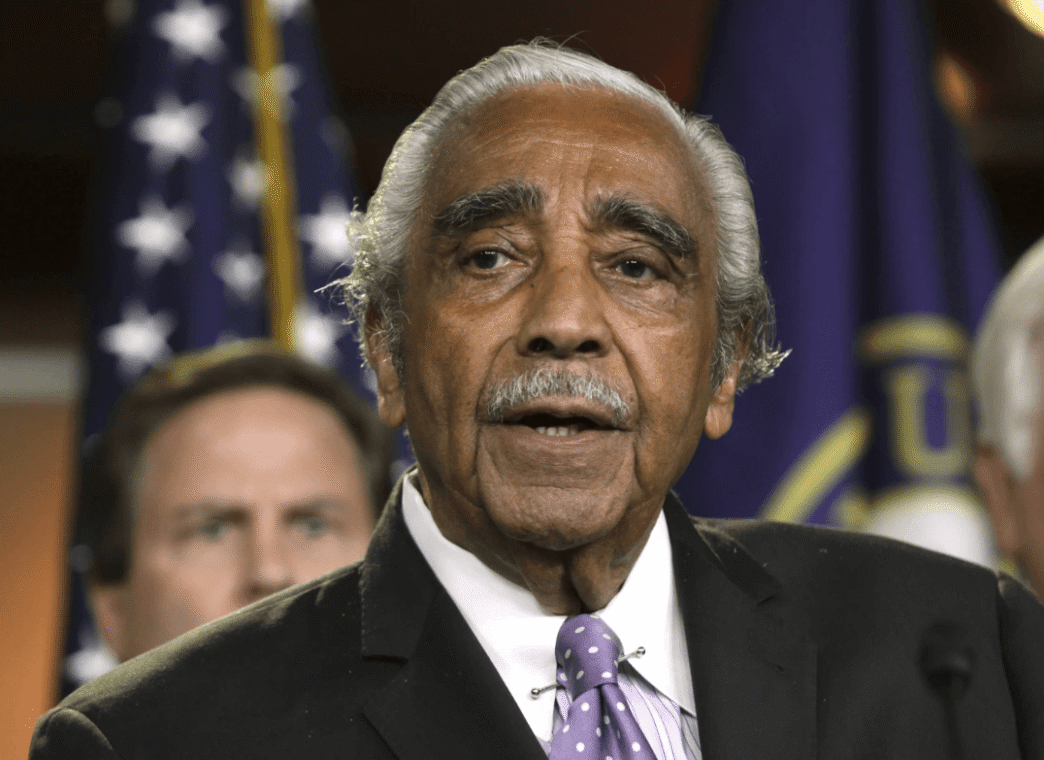Charles Rangel, the outspoken and gravel-voiced Harlem Democrat who represented New York in Congress for nearly five decades, died Monday at 94.
In a statement released by City College of New York spokesperson Michelle Stent, Rangel’s family confirmed his passing. He died at a hospital in New York.
A decorated Korean War veteran, Rangel began his storied political career in 1970 when he defeated Harlem legend Adam Clayton Powell Jr. to win a seat in the U.S. House of Representatives. Over the next 46 years, he became one of the most influential voices in American politics, known for his fiery advocacy, legislative accomplishments, and leadership within the Congressional Black Caucus, which he helped found.
In 2007, Rangel made history as the first African American to chair the powerful House Ways and Means Committee. However, his tenure ended in controversy when he stepped down amid ethics investigations. In 2010, he was formally censured by the House for ethics violations, including failure to pay taxes on a rental villa and improper fundraising activities.
Despite the scandal, Rangel remained a dominant political force until his retirement in 2017. He was the last surviving member of New York’s famed “Gang of Four” — a group of influential Black political leaders that included David Dinkins, Percy Sutton, and Basil Paterson.
“Charlie was a true activist — we’ve marched together, been arrested together and painted crack houses together,” said Rev. Al Sharpton, who met Rangel as a teenager.
House Democratic Leader Hakeem Jeffries described Rangel as “a patriot, hero, statesman, leader, trailblazer, change agent, and champion for justice who made his beloved Harlem, the City of New York, and the United States of America a better place for all.”
Rangel’s unique, gravelly voice and sharp wit made him a standout on Capitol Hill. He was one of the House’s most liberal voices and a fierce critic of the Iraq War. In 2004, he introduced a bill to reinstate the military draft to highlight the unequal burden of war on low-income and minority communities. Ironically, he even voted against it when Republicans brought it to the floor.
He also had memorable public clashes with then-Vice President Dick Cheney. “I would like to believe he’s sick rather than just mean and evil,” Rangel once said. Cheney fired back, suggesting Rangel was “losing it.”
Throughout his career, Rangel championed legislation that supported economic justice. He sponsored “empowerment zones,” offering tax incentives to businesses investing in low-income areas, and in 1987, Congress passed the “Rangel Amendment,” which denied foreign tax credits to U.S. firms investing in apartheid-era South Africa.
Former Secretary of State Hillary Clinton credited Rangel with encouraging her to run for the Senate in 2000. Former President Bill Clinton also recalled their work on expanding tax credits for businesses in distressed communities during the 1990s.
Born on June 11, 1930, Rangel’s early life was far from easy. He dropped out of high school but later earned his diploma and pursued higher education through the G.I. Bill, attending New York University and St. John’s University Law School.
During the Korean War, he earned both the Purple Heart and Bronze Star for heroism, surviving a near-fatal injury. That experience profoundly shaped his life, and he titled his memoir “And I Haven’t Had A Bad Day Since.”
Looking back on his long career, Rangel once said, “I have always been committed to fighting for the little guy.” His legacy as a champion for justice and the people of Harlem leaves an indelible mark on American history.





















